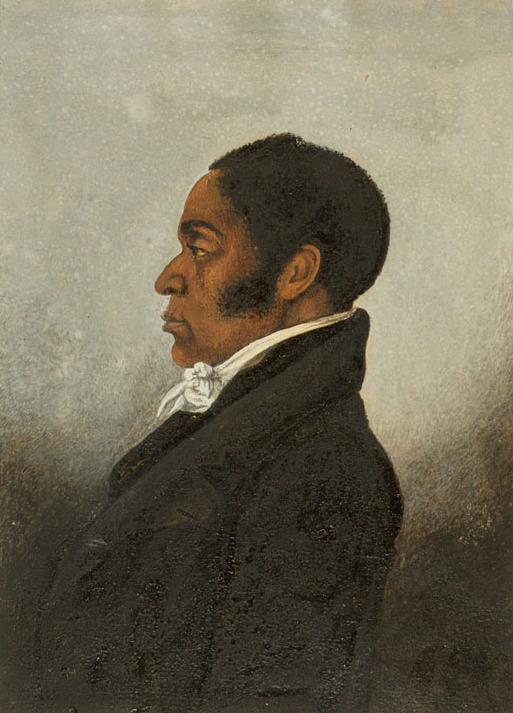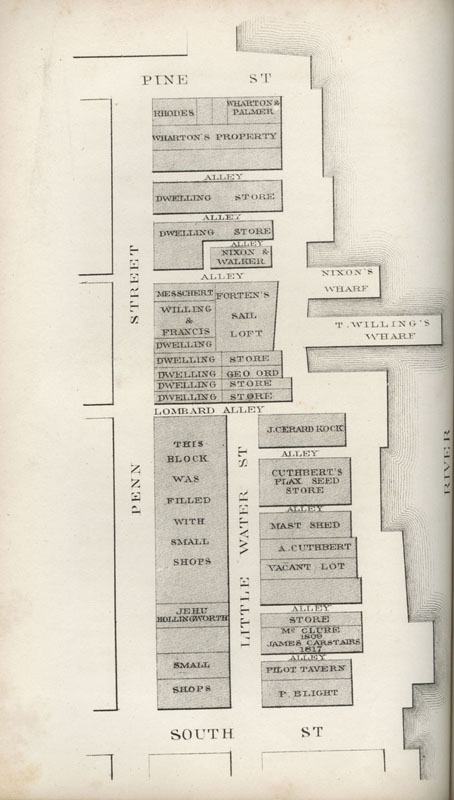James Forten - One of America's Founding Fathers
Related Posts
- Buy Tickets for The Constitutional Walking Tour of Philadelphia – See 20+ Sites on a Primary Overview of Independence Park, including the Liberty Bell and Independence Hall
- Independence Hall
- Mother Bethel African American Methodist Church
- The President's House
Birth: September 2, 1766
Death: March 4, 1842 (age 75)
Colony: Pennsylvania
Occupation: Privateer, Sail Maker and Abolitionist
Significance: Prominent African American Businessman and Abolitionist

James Forten was a Founding Father of the United States of America. Born as a free African American in Philadelphia, Forten was educated in one of the city’s Quaker schools, and he began working with his father as a sailmaker at the age of just eight. After Forten’s father died in a boating accident, Forten became the primary provider for his mother and sister at the age of nine, and he was forced to leave school to find additional employment.
Revolutionary War
Forten grew up in a time of great political upheaval in America since the Revolutionary War broke out when Forten was just eight years of age. When he turned nine, Forten heard The Declaration of Independence read aloud for the first time behind Independence Hall. At age eleven, Forten watched as the British took over the Capital City of Philadelphia.
At just fourteen years old, Forten volunteered to serve as a “powder boy” on the Royal Louis under Captain Stephen Decatur, Sr., a privateer supporting the United States during the Revolutionary War. As a powder boy, Forten carried gun powder from the ship’s powder magazine to the ship’s cannons. While serving, Forten’s ship was captured by the British, and he was at risk of being sold into slavery. Instead, Forten was transported to the HMS Jersey where Forten became a prisoner of war. The conditions aboard the ship were terrible and thousands of Americans died aboard British prisoner ships during the Revolutionary War.
Forten was released in a prisoner exchange in 1782, but he remained in England, working in London shipyards before he was able to secure voyage home to Philadelphia.
Financial Success and Activism
Back in Philadelphia, Forten resumed his work as a sailmaker. The owner of the sail loft, Robert Bridges, decided to put Forten in charge of the operation when he retired, and by the time Forten was 35, he had purchased the business from Bridges. Forten developed new types of sails and sail tools that allowed ships to maneuver better and maintain higher speeds. These innovations brought Forten’s business great success, and Forten became the premier sailmaker in Philadelphia. Forten employed dozens of people, both black and white, at his sail loft, and he enjoyed tremendous financial success.

Forten used his newly earned wealth and power to fund charities serving African Americans and to advocate strongly for the abolition of slavery as well as the civil rights for African Americans. In 1800, before Congress departed Philadelphia for Washington, D.C., Forten organized a petition advocating for Congress to abolish slavery in America. Forten also became an outspoken critic of Pennsylvania’s 1780 Gradual Emancipation Act. Although Pennsylvania passed the first emancipation act in the United States, it was so gradual and incremental that there were still some slaves held in Pennsylvania when the Civil War started 80 years later. Forten pushed for an immediate abolishment of slavery in Pennsylvania, and he called for Pennsylvania to end a prohibition of the immigration of freed slaves from other states.
When the American Colonization Society was formed to try and send free African Americans back to Africa, Forten became a national leader against the movement. In an 1817 meeting with Richard Allen, Absalom Jones, and other prominent African Americans, Forten denounced the American Colonization Society and affirmed the rights of African Americans to live free in America. Forten also used his considerable wealth to help fund an abolitionist newspaper, The Liberator, which he also contributed to as a writer.
Forten fought for American Independence, but once it was secured Forten was among those not included in the vision laid out by the framers of the United States Constitution. Forten therefore had to fight again, this time outside of the system, for the rights of African Americans and to carve out a space in American society that was not provided to them. At the time of his death in 1842, Forten was among the most influential African Americans in the country and his funeral was attended by thousands.
Forten is interred in Eden Cemetery, a historic African American cemetery located just outside of Philadelphia, where many of the most prominent African American Philadelphians are buried.
James Forten in Philadelphia
Forten lived in Philadelphia for most of his life and operated his successful sail loft in Philadelphia just below Pine Street along the Delaware River. Forten lived near Independence Hall and heard The Declaration of Independence read aloud there for the first time when he was a boy. Forten attended Church at Mother Bethel A.M.E. Church which was run by fellow abolitionist Richard Allan.
Today you can learn more about James Forten at the African American Museum in Philadelphia, the first museum in America dedicated to African American history. There is also some information on Forten and Philadelphia's free African American community at the site of the President's House in Philadelphia. Independence Hall and the President's House are both stops on The Constitutional Walking Tour!



